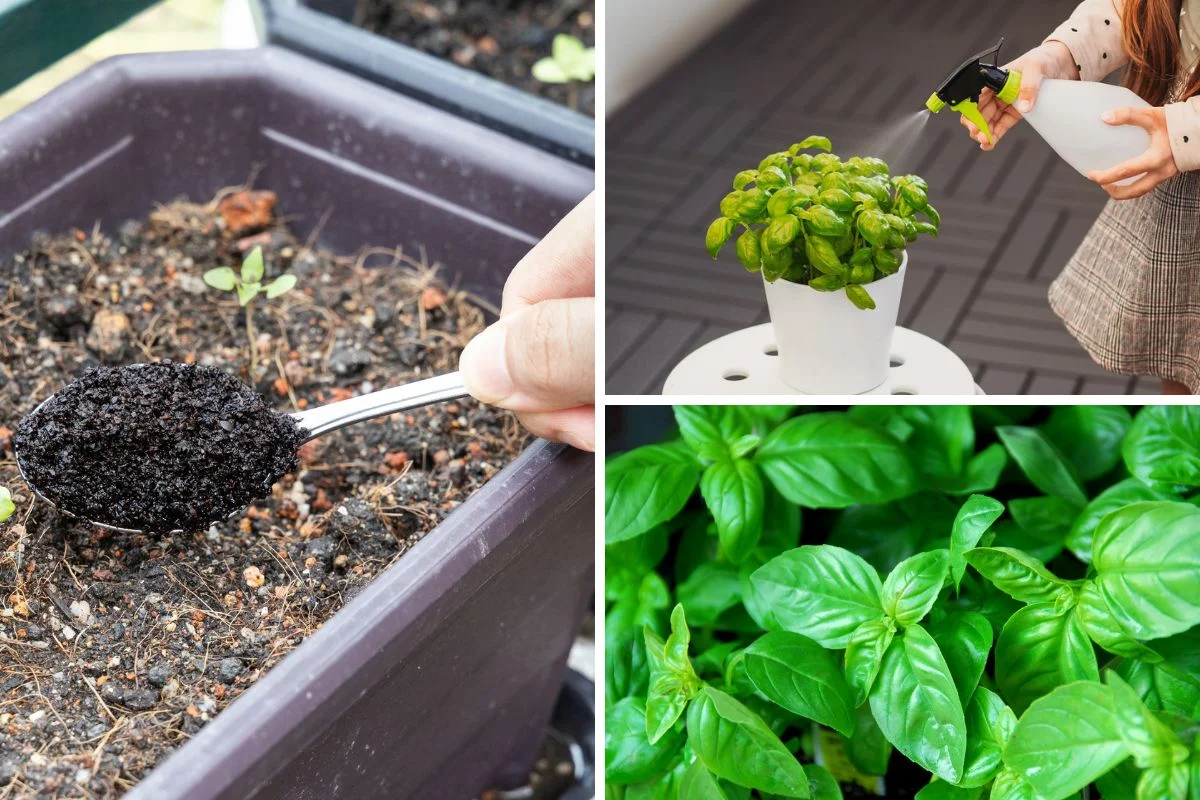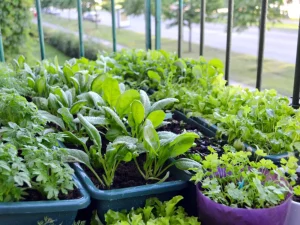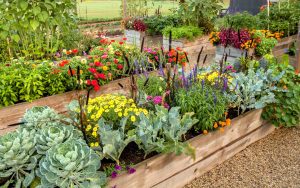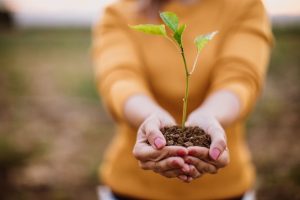More and more gardeners and people who care about the environment are looking for natural organic fertilizers to make their gardens lush and full of life. These natural alternatives to synthetic fertilizers will not only help your plants grow, they will also keep your soil healthy and encourage you to garden in a way that is good for the planet. As we take a closer look at organic natural fertilizers, we’ll learn about their benefits, learn about the different types of fertilizers, and learn how they can transform your garden into a vibrant oasis.
Why Organic Natural Fertilizers are Important?
A good garden starts with good soil. Organic natural fertilizers are an important part of making the soil more fertile and providing plants with the nutrients they need to grow, bloom and bear fruit. Synthetic fertilizers can contain dangerous chemicals and disrupt the natural balance of the soil. Organic fertilizers, on the other hand, come from natural sources and do not harm the environment.
Benefits of Organic Natural Fertilizers:
Environmentally Friendly
Organic natural fertilizers come from reusable materials such as soil, animal manure and vegetable waste. They decompose naturally and do not release harmful chemicals into the land or water. When you choose organic food, you help the world become a better place.
Healthy Soil
Organic fertilizers change the structure of the soil, making it better able to retain water and nutrients. They help good microorganisms function and provide a fertile environment for plant growth. Healthy soil is the key to keeping your plants strong and disease-free.
Nutrient-Rich Plants
Typically, plants grown with natural organic fertilizers contain more nutrients. These fertilizers provide plants with many important nutrients such as nitrogen, phosphorus, potassium and micronutrients, making the food you and your family eat healthy.
Sustainable Gardening
The use of natural organic fertilizers is in line with the concept of permaculture. It makes the garden less dependent on chemicals, helps with the natural cycle of nutrients and makes the garden more diverse. Permaculture gardens are not only useful, they are also good for the planet.
Different Types of Natural Organic Fertilizers:
Composting
Composting is the best way to recycle organic waste. It consists of materials such as food scraps, garden waste and decomposing plant matter. Compost adds nutrients to the soil, improves its structure and helps it retain more moisture. It is a balanced fertilizer that can be used on different plants.
Animal Manure
Animal manure, when properly composted, is a valuable organic fertilizer. Chicken, cow, horse and rabbit manure is often used. Manure is rich in nitrogen and provides plants with what they need to grow. But it must be turned into compost to kill bacteria and reduce the chance of contamination.
Bone Meal
Bone meal is a natural fertilizer made by grinding animal bones and other waste from slaughterhouses. It contains large amounts of phosphorus, which is important for root growth and flowering. Flowering plants, flowers and fruit trees benefit most from bone meal.
Fish Emulsion
Fish emulsions are renewable liquid fertilizers made from fish waste. It is a fast fertilizer and contains a lot of nitrogen. This makes it great for growing leaves that are thick and healthy. Typically, fish emulsion is mixed with water and used to spray plant leaves or soak the soil.
Seaweed Fertilizer
Seaweed is used to make seaweed fertilizer, which is rich in trace elements, amino acids and chemicals that promote plant growth. It helps plants grow strong roots, making them more resistant to stress and improving their overall health. Seaweed fertilizers are available in liquid and granular forms.
Green Manure
Green manures such as clover, vetch and alfalfa are grown to increase soil fertility. The plants are grown and returned to the soil, adding nitrogen and organic material. Green manures help remove weeds, prevent dirt from washing away and improve soil structure.
How to Use Organic and Natural Fertilizers:
Timing
Use natural organic fertilizers at the right time to get the most out of them. The best time to fertilize most plants is in early spring when they are growing quickly. Also consider adding extra fertilizer as heavy feeders like vegetables grow.
Mix It Well
When using organic fertilizers, it is important to follow mixing directions. If you use too much, you can upset the nutrient balance or, in the case of some strong fertilizers, burn the plant. Always follow the manufacturer’s instructions or rules for using homemade compost.
Use Mulch
Covering your plants with organic matter such as straw, leaves or compost will retain moisture in the soil, maintain an even temperature and slowly release nutrients. Mulch acts as a slow-release natural fertilizer, making the soil richer over time.
Changes in Crops
Rotate crops to prevent the land from losing nutrients. Different plants need different types of nutrients. By changing what you grow each year, you give the soil a chance to heal and naturally receive more of the nutrients it needs.
Regular Monitoring
Check your plants regularly for signs of too little or too much minerals. Nutritional problems can manifest as yellowing leaves, slow growth or poor flowering. Adjust your fertilization schedule to the needs of your plants.
Conclusion:
Using natural, organic fertilizers to water your garden is not just a gardening choice; It is also a commitment to protecting the planet and doing things in a sustainable way. By using these natural options, you can ensure your garden grows well, your food tastes better and the planet stays healthy. Organic gardening methods not only provide beautiful and fertile soil, but also help people live in harmony with nature.
When you grow your garden using natural organic fertilizers, you embark on a journey that celebrates the wisdom of nature. The result is not only a beautiful garden, but also a great example of how organic, permaculture practices can help plants grow. So grow your garden using organic fertilizers and watch it become a place full of life, color and natural abundance. This will be a living example of the miracles that happen when we nourish the earth one plant at a time.
FAQs:
1. What are the essential nutrients provided by organic natural fertilizers, and how do they contribute to the overall health of plants and soil?
Explore the vital nutrients like nitrogen, phosphorus, and potassium found in organic natural fertilizers. Understand how these elements promote robust plant growth, strong root systems, and fertile, balanced soil.
2. Can organic natural fertilizers be made at home, and what are some DIY methods for creating nutrient-rich compost or fertilizers?
Discover the art of creating homemade organic fertilizers through composting kitchen scraps, yard waste, and organic materials. Learn about effective DIY techniques that transform everyday items into valuable garden nourishment.
3. How do organic natural fertilizers contribute to biodiversity in the garden, and what role do they play in supporting beneficial microorganisms and insects?
Delve into the symbiotic relationship between organic natural fertilizers, beneficial microbes, and insects. Learn how these fertilizers foster biodiversity, attracting pollinators, earthworms, and beneficial insects, creating a thriving ecosystem in your garden.
4. What is the significance of sustainable gardening practices, and how do organic natural fertilizers align with eco-friendly, environmentally responsible gardening?
Explore the broader context of sustainable gardening and its impact on the environment. Understand how choosing organic natural fertilizers promotes eco-friendly gardening, reduces chemical runoff, and supports a healthier planet for future generations.
5. Are there specific organic natural fertilizers suited for different types of plants, and how can gardeners choose the right fertilizer for their specific crops or garden needs?
Uncover the tailored approach to organic natural fertilization. Learn about specialized fertilizers for various plants, from flowering perennials to vegetable gardens. Understand the factors that influence fertilizer selection, ensuring optimal growth for every plant in your garden.



